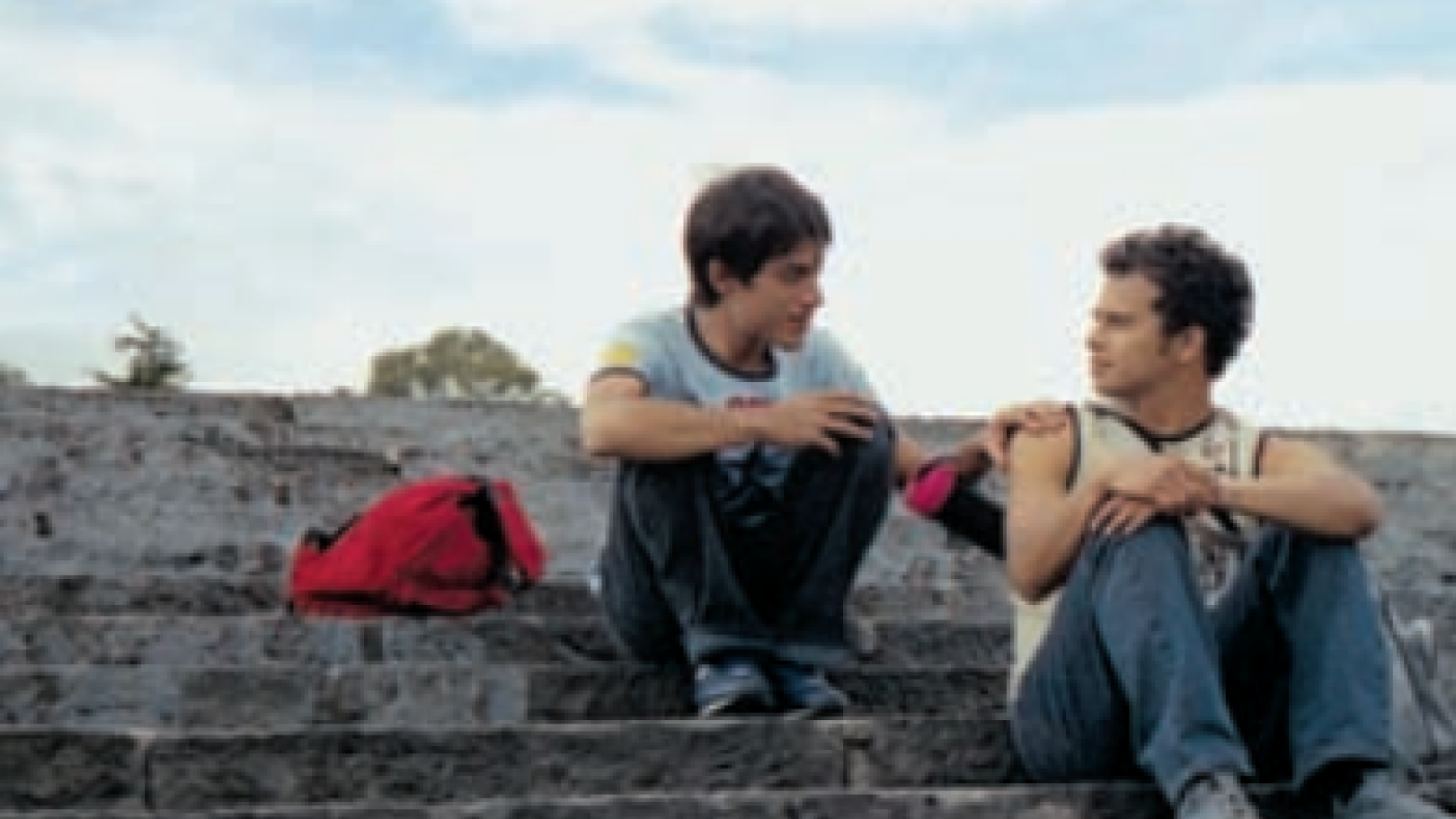El cielo dividido

Gerardo and Jonas found love because they sought each other out. Theirs is an intense, passionate love. And then, one night at a disco, Bruno intervenes. A man of uncertain age, Bruno appears to be magnetically drawn towards this charismatic couple. Jonas has an affair with him, but lacks the verve or the brazenness to take off with him. No sooner does Bruno appear than he disappears again. From this moment onwards, Gerardo sees Jonas as a harbinger of unavoidable death. Jonas, however, is still utterly enchanted by Bruno’s memory. Gerardo finds this unbearable; worse still, Jonas appears to show no interest in him physically. Although they have no intention of parting, their new way of life raises many problems and unexpected conflicts – but above all questions, so many questions. Frustrated by the situation, Gerardo begins having affairs with other men. One of them is Sergio. Gerardo met him that night at the disco. Although it did not strike him at the time, Gerardo is now convinced that Sergio is the man he has been waiting to meet. But sex with Sergio primarily serves to banish all memory of Jonas.
Gerardo and Jonas stay together in spite of their relationships with other men. They love each other. And they will continue to love each other to the end of their days. Even if their parting is inevitable.
details
-
Runtime
140 min -
Country
Mexico -
Year of Presentation
2006 -
Year of Production
2005 -
Director
Julián Hernández -
Cast
Miguel Ángel Hoppe, Fernando Arroyo, Ignacio Pereda, Alejandro Rojo, Klaudia Aragón, Clarisa Rendón, Pilar Ruíz, Ortos Soyus -
Production Company
Mil Nubes Cine -
Berlinale Section
Panorama -
Berlinale Category
Feature Film
pictures from the movie

Biography Julián Hernández
Julián Hernández (born 1972 in Mexico City, Mexico as Julián Hernández Pérez) is a Mexican multi-awarded filmmaker. He won twice the Teddy Award at Berlin Film Festival with his movies Thousand Clouds of Peace Fence the Sky, Love, Your Being Love Will Never End (2003), and Raging Sun, Raging Sky (2009). He studied at the Centro Universitario de Estudios Cinematográficos (CUEC), from where he was expelled due to his gay-themed films during a homophobic administration, and was not mentioned as a serious director until he started winning international recognition. He has credited his use of cinematographic language to influences from filmmakers such as Michelangelo Antonioni, Leonardo Favio, Robert Bresson, and Alain Resnais. Hernández has directed more than 20 awarded short films (both documentaries and fictional), and became a gay-cinema icon for his feature films, including Broken Sky. Along with producer and director Roberto Fiesco, he founded Cooperativa Cinematográfica Morelos. which later became the prestigious production company Mil Nubes Cine, producing 29 films over two decades.